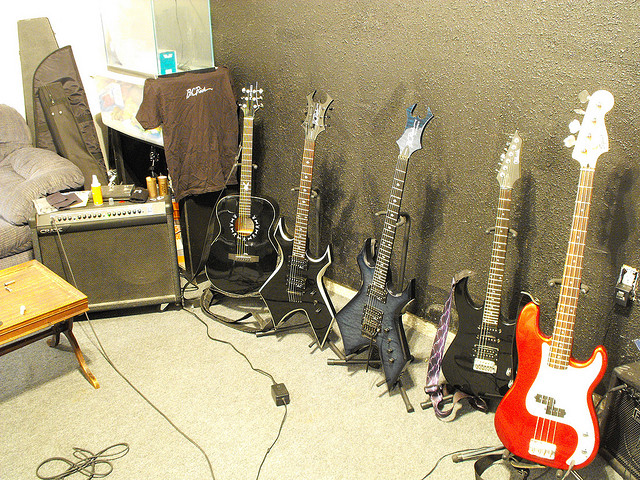<p>When you are ready to take your creativity to a whole new level, learning an instrument is a great direction to go in. If you love the guitar, you may be tempted to just rush out and purchase the nicest one that you find at a local music store that is actually affordable enough to fit your budget too.<br />
The problem, though, is that purchasing your first guitar is not so simple. There is a lot more involved in the buying process, and there is also plenty to consider when it comes to the type of guitar that you buy.<br />
Read on to learn a few tips that will help guide you as you pick your very first guitar and start your future as a musician.</p>
<h2>Choose Between Acoustic and Electric Guitar</h2>
<p>One of the first decisions that you need to make has to do with what type of guitar you want to play. You need to decide whether an acoustic or electric instrument is most appropriate for where you want to go as a musician.<br />
These instruments may look the same, and you can play the same notes, chords, and scales on them, but the actual technique and approach involved with both of these is different.<br />
Therefore, if you go out and purchase an acoustic guitar but you really wanted to learn electric guitar, or vice versa, you and your instructor will quickly realise that you made a mistake.</p>
<h2>Choose a Guitar That Fits Your Body</h2>
<p>Guitars come in all shapes and sizes, so when you purchase one you have to consider how comfortably you can play it. If the design or the size is not appropriate for your body size, you will be incredibly uncomfortable playing it and you may, in fact, find it quite painful.<br />
While at the guitar shop, test a few out to see how you feel and ask for the expert advice of a salesperson if you are not sure what is best for you. In other words, do not just purchase a guitar based on its look, its shape, or the famous rock star that is known for playing it.</p>
<h2>Don’t Purchase a Guitar Based on Brand</h2>
<p>You need to purchase a guitar that is specially made for beginners, and some of the higher end, popular, and expensive guitar makers do not cater to that demographic.<br />
Therefore, do not rely solely upon brand name as a deciding factor. Instead, find out what guitar manufacturers are out there that are lesser known but still create high quality instruments that are tailored to beginner and intermediate students.</p>
<h2>Pay a Little More For Quality</h2>
<p>A higher quality guitar will cost more, whereas a cheaply made guitar that is difficult to use, adjust, and tune will have a very low price. Even if you are on a budget, you should invest in the best possible guitar within your price bracket. Opting for the cheapest guitar on the shelf could spell disaster in the long run and impede your success as a student of the craft.<br />
Andrew Baxton is a renowned author of all things relating to music. When getting the latest information on guitars, Andrew visits whichguitar.co.uk.</p>

Tips For Purchasing Your First Guitar
